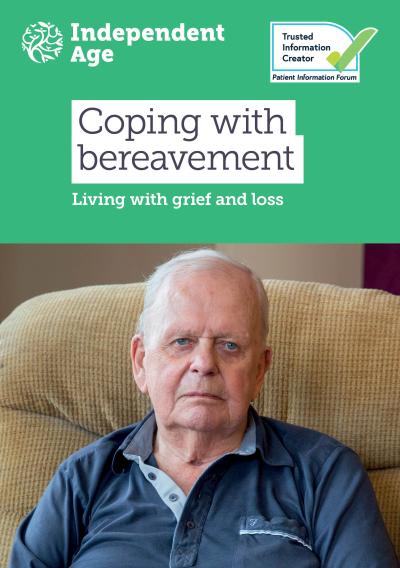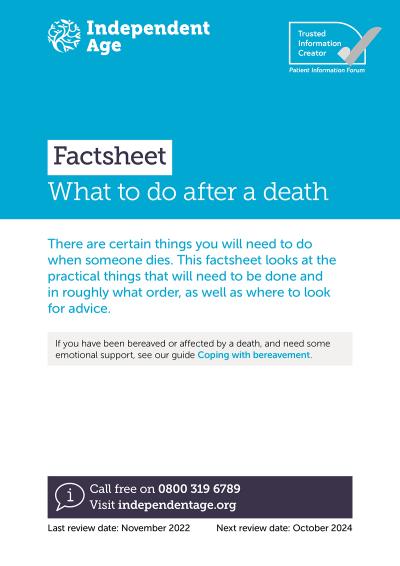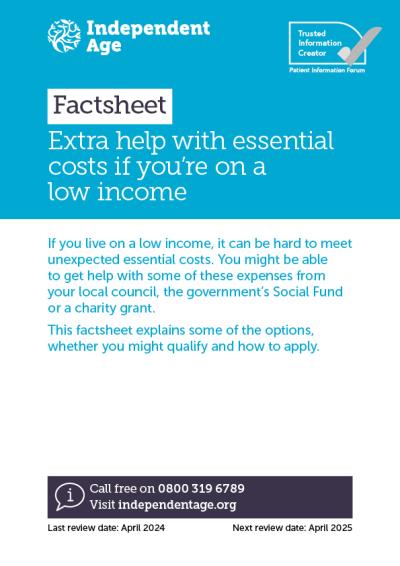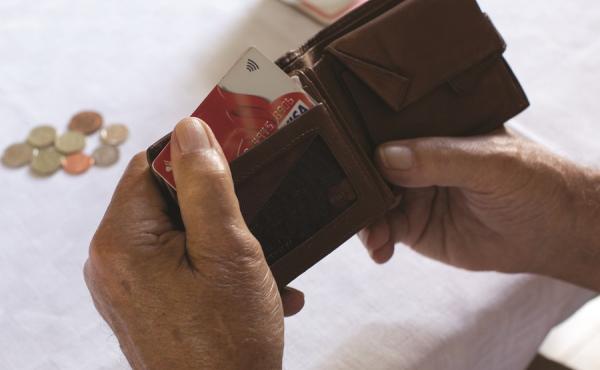Related publications

Coping with bereavement

What to do after a death


Funerals are expensive – the cost can vary depending on where you live and the type of funeral you want. Planning ahead and considering your options can help you to reduce costs and stay within your budget.
Unless the person who died made provision for their funeral, family or friends will usually pay. Costs can usually be reclaimed from the estate if there’s enough money to cover it (for more information on estates, read our factsheet What to do after a death). If there isn’t enough money to pay for the funeral and there are no relatives or friends who can arrange the funeral, the local council or hospital can arrange a simple public health funeral. Be aware that you won't have much control over a public health funeral - you won't be able to choose where or when it takes place, for example.
If your income is low, you might be able to get a Funeral Expenses Payment to help meet the costs of the funeral. In Scotland, this is known as a Funeral Support Payment.
You’ll usually have to pay back any money you’re awarded from the estate of the person who died. To qualify, you’ll need to:
Funeral Expenses Payments can only be used to cover certain funeral costs, including:
If the person who died had a pre-paid funeral plan, you’ll only be able to get up to £120 for items not covered by the plan.
The amount you get from a Funeral Expenses Payment varies, but usually won’t cover the full cost of even a simple funeral, so you’ll need to find other ways to meet any outstanding costs. You may be able to get a budgeting loan from the Social Fund (or budgeting advance if you’re getting Universal Credit) or a grant from a charity. For more information, see our factsheet Extra help with essential costs if you're on a low income, or call our Helpline (0800 319 6789).
To apply for a Funeral Expenses Payment, call the Bereavement Service Helpline on 0800 731 0469 or download a claim form from Gov.uk.
There are various things you can do to keep the costs of a funeral under control. If you’re using a funeral director:
Make sure you choose a funeral director who is a member of the National Association of Funeral Directors or the National Society of Allied and Independent Funeral Directors. Members of these professional associations have to provide you with a price list if you request it.
Funeral director’s fees are usually the largest funeral cost, so arranging the funeral yourself could save you money, but you would then have a lot more to organise.
Take time to consider what you want the funeral to be like. A more expensive funeral won’t necessarily be better. The person who died may have wanted some traditional elements of a funeral but not been so worried about others. For example, funeral flowers cost £193 on average. You could consider alternative decorations that might be a more personal tribute.
You could consider direct burial or direct cremation, although not all funeral directors offer this option. There will be no ceremony, viewing, hearse, or procession to the funeral. The body will be collected and cremated or buried by the funeral directors at a less popular time of day. This option won’t feel right to everyone, but you could still choose to hold a memorial service at a later date in a way that might suit you better than a funeral.
MoneyHelper and The Natural Death Centre have more tips on keeping down the costs of a funeral.
Read our factsheet What to do after a death for advice on the things you need to consider after someone dies.
For further support, see our guide Coping with Bereavement.


